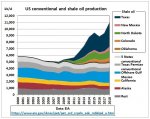- Joined
- Apr 8, 2019
- Messages
- 1,093
- Reaction score
- 229
- Gender
- Male
- Political Leaning
- Slightly Liberal
Are we trying to understand each other? or our we trying to educate others by flexing our brain power? You can display great understanding and you connect with more people when the message is simple and understandable.
I came in with the wrong attitude and I apologize. I would understand if you would prefer to leave the discussion here, but in case I didn't behave too much like a jerk, let me try to start over.
With regards to inflation, in plain English this time, we're trying to capture changes in a price that reflects what your average Mom and Pop would buy. It's based on an abstraction, so there absolutely is an issue of which prices we should consider and of how we should aggregate them, but if we absolutely have to use just one price index for everything, I believe most economists would pick a variant of the consumption price index (CPI). To be fair, that's annecdotal. I don't have a survey of either economists, or the entire literature. So, to revise my statement about what happened during the 2008-2010 period, the Federal Reserve Board increased the monetary base almost three folds and we have not seen abnormally high growth rates for any variants of the CPI.
It's perfectly possible that some prices that either receive a small weight or not weight in those consumption indexes moved a lot. You told me elsewhere that you trade on a daily basis, so you probably have something to say about this. In particular, you said that there was evidence of inflation in money markets. Can you give me more details?

